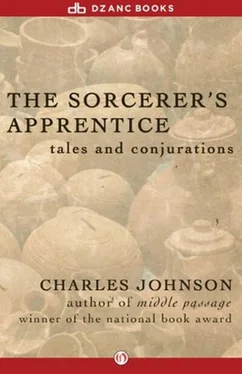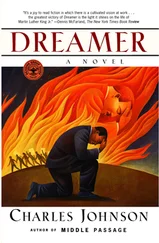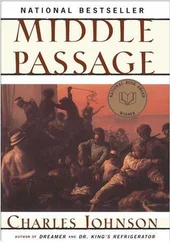And, of course, Rudolph was no dummy. Not a total dummy, at least. He pretended nothing extraordinary had happened as the congregation left the little whitewashed church. He stood, the youngest son, between his father and mother, and let old Deacon Adcock remark, “Oh, how strong he’s looking now,” which was a lie. Rudolph was the weakest of the Jackson boys, the pale, bookish, spiritual child born when his parents were well past forty. His brothers played football, they went into the navy; Rudolph lived in Scripture, was labeled 4-F, and hoped to attend Moody Bible Institute in Chicago, if he could ever find the money. Evelyn could tell Rudolph knew exactly where she was in the crowd, that he could feel her as she and her sister, Debbie, waited for their father to bring his DeSoto — the family prize — closer to the front steps. When the crowd thinned, he shambled over in his slow, ministerial walk, introduced himself, and unfolded her note.
“You write this?” he asked. “It’s not right to play with the Lord’s money, you know.”
“I like to play,” she said.
“You do, huh?” He never looked directly at people. Women, she guessed, terrified him. Or, to be exact, the powerful emotions they caused in him terrified Rudolph. He was a pud puller, if she ever saw one. He kept his eyes on a spot left of her face. “You’re Joe Montgomery’s daughter, aren’t you?”
“Maybe,” teased Evelyn.
He trousered the note and stood marking the ground with his toe. “And just what you expect to get, Miss Playful, by fooling with people during collection time?”
She waited, let him look away, and, when the back-and-forth swing of his gaze crossed her again, said in her most melic, soft-breathing voice: “You.”
Up front, portly Reverend Merrill concluded his sermon. Evelyn tipped her head slightly, smiling into memory; her hand reached left to pat Rudolph’s leg gently; then she remembered it was Shelberdine beside her, and lifted her hand to the seat in front of her. She said a prayer for Rudolph’s health, but mainly it was for herself, a hedge against her fear that their childless years had slipped by like wind, that she might return home one day and find him — as she had found her father — on the floor, bellied up, one arm twisted behind him where he fell, alone, his fingers locked against his chest. Rudolph had begun to run down, Evelyn decided, the minute he was turned down by Moody Bible Institute. They moved to Seattle in 1956—his brother Eli was stationed nearby and said Boeing was hiring black men. But they didn’t hire Rudolph. He had kidney trouble on and off before he landed the job at the Post Office. Whenever he bent forward, he felt dizzy. Liver, heart, and lungs — they’d worn down gradually as his belly grew, but none of this was as bad as what he called “the Problem.” His pecker shrank to no bigger than a pencil eraser each time he saw her undress. Or when Evelyn, as was her habit when talking, touched his arm. Was she the cause of this? Well, she knew she wasn’t much to look at anymore. She’d seen the bottom of a few too many candy wrappers. Evelyn was nothing to make a man pant and jump her bones, pulling her fully clothed onto the davenport, as Rudolph had done years before, but wasn’t sex something else you surrendered with age? It never seemed all that good to her anyway. And besides, he’d wanted oral sex, which Evelyn — if she knew nothing else — thought was a nasty, unsanitary thing to do with your mouth. She glanced up from under her spring hat past the pulpit, past the choir of black and brown faces to the agonized beauty of a bearded white carpenter impaled on a rood, and in this timeless image she felt comforted that suffering was inescapable, the loss of vitality inevitable, even a good thing maybe, and that she had to steel herself — yes — for someday opening her bedroom door and finding her Rudolph face down in his breakfast oatmeal. He would die before her, she knew that in her bones.
And so, after service, Sanka, and a slice of meat pie with Shelberdine downstairs in the brightly lit church basement, Evelyn returned home to tell her husband how lovely the Griffin girls had sung that day, that their neighbor Rod Kenner had been saved, and to listen, if necessary, to Rudolph’s fear that the lump on his shoulder was an early-warning sign of something evil. As it turned out, Evelyn found that except for their cat, Mr. Miller, the little A-frame house was empty. She looked in his bedroom. No Rudolph. The unnaturally still house made Evelyn uneasy, and she took the excruciatingly painful twenty stairs into the basement to peer into a workroom littered with power tools, planks of wood, and the blueprints her husband used to make bookshelves and cabinets. No Rudolph. Frightened, Evelyn called the eight hospitals in Seattle, but no one had a Rudolph Lee Jackson on his books. After her last call the star-burst clock in the living room read twelve-thirty. Putting down the wall phone, she felt a familiar pain in her abdomen. Another attack of Hershey squirts, probably from the meat pie. She hurried into the bathroom, lifted her skirt, and lowered her underwear around her ankles, but kept the door wide open, something impossible to do if Rudolph was home. Actually, it felt good not to have him underfoot, a little like he was dead already. But the last thing Evelyn wanted was that or, as she lay down against her lumpy backrest, to fall asleep, though she did, nodding off and dreaming until something shifted down her weight on the side of her bed away from the wall.
“Evelyn,” said Rudolph, “look at this.” She blinked back sleep and squinted at the cover of a magazine called Inside Kung-Fu , which Rudolph waved under her nose. On the cover a man stood bowlegged, one hand cocked under his armpit, the other corkscrewing straight at Evelyn’s nose.
“Rudolph!” She batted the magazine aside, then swung her eyes toward the cluttered night-stand, focusing on the electric clock beside her water glass from McDonald’s, Preparation H suppositories, and Harlequin romances. “It’s morning!” Now she was mad. At least, working at it. “Where have you been?”
Her husband inhaled, a wheezing, whistlelike breath. He rolled the magazine into a cylinder and, as he spoke, struck his left palm with it. “That movie we saw advertised? You remember — it was called The Five Fingers of Death . I just saw that and one called Deep Thrust.”
“Wonderful.” Evelyn screwed up her lips. “I’m calling hospitals and you’re at a Hong Kong double feature.”
“Listen,” said Rudolph. “You don’t understand.” He seemed at that moment as if he did not understand either. “It was a Seattle movie premiere. The Northwest is crawling with fighters. It has something to do with all the Asians out here. Before they showed the movie, four students from a kwoon in Chinatown went onstage—”
“A what?” asked Evelyn.
“A kwoon — it’s a place to study fighting, a meditation hall.” He looked at her but was really watching, Evelyn realized, something exciting she had missed. “They did a demonstration to drum up their membership. They broke boards and bricks, Evelyn. They went through what’s called kata and kumite and…” He stopped again to breathe. “I’ve never seen anything so beautiful. The reason I’m late is because I wanted to talk with them after the movie.”
Evelyn, suspicious, took a Valium and waited.
“I signed up for lessons,” he said.
She gave a glacial look at Rudolph, then at his magazine, and said in the voice she used five years ago when he wanted to take a vacation to Upper Volta or, before that, invest in a British car she knew they couldn’t afford:
“You’re fifty-four years old, Rudolph.”
“I know that.”
Читать дальше












